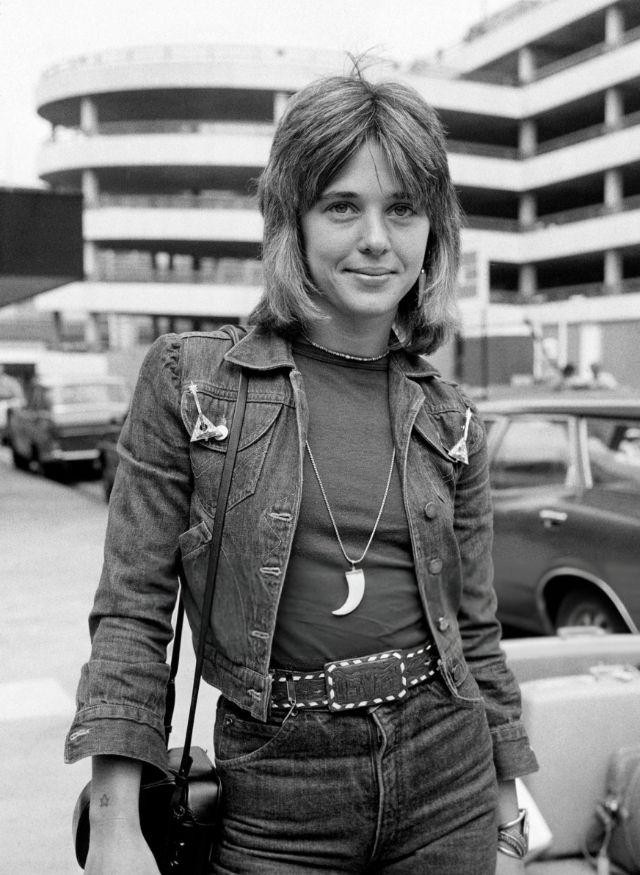Suzi Quatro (born June 3, 1950) is an American singer, bass guitarist, songwriter, and actress. In the 1970s, she scored a string of singles that found success in Europe and Australia. Quatro was revolutionary for her time. She was one of the first women to front a rock band, sing lead vocals, play bass guitar, and write songs, challenging the male-dominated music industry.
Her iconic image, often featuring a leather jumpsuit with her bass slung low, was influential and became synonymous with her tough, rock-and-roll persona. She herself states that the leather and her image were her own ideas. While often associated with glam rock due to the timing and her aesthetic, Quatro consistently maintained that she was a “rock & roll” artist, not “glam rock.”
After moving to London in 1971 and signing with Mickie Most’s Rak Records, Quatro found immense success, particularly in Europe and Australia. Her breakthrough came with the singles “Can the Can” (1973), “48 Crash” (1973), and “Devil Gate Drive” (1974), all of which were major hits and topped charts in various countries. These were largely penned by the renowned songwriting duo Nicky Chinn and Mike Chapman.
Later in the decade, her duet with Chris Norman, “Stumblin’ In” (1978), became her only Top 40 hit in the US, showcasing a softer rock sound that was a departure from her earlier work. Other notable songs from the 1970s include “Daytona Demon,” “Too Big,” “The Wild One,” “Your Mama Won’t Like Me,” and “If You Can’t Give Me Love.”
Quatro’s impact on female musicians is undeniable. She paved the way for countless artists and inspired generations of women in rock. Artists who have cited her as a major influence include Joan Jett, Chrissie Hynde of The Pretenders, Tina Weymouth of Talking Heads (who learned bass by listening to Quatro’s albums), Debbie Harry of Blondie, Kathy Valentine of The Go-Go’s, and KT Tunstall.
Beyond music, Quatro gained significant recognition in the United States for her recurring role as Leather Tuscadero, a bass player, in the popular sitcom Happy Days between 1977 and 1979. This role introduced her to a wider American audience.
In summary, the 1970s was a pivotal decade for Suzi Quatro, establishing her as a groundbreaking and influential rock artist who left an indelible mark on music history, particularly for female musicians.
















































The first picture is Olivia Newton John, not Suzi Quatro.
ReplyDeleteYou might want to recheck your sources in future.
Just changed it. Thank you.
DeleteHow did we ever buy that very 70's hairstyle for 50's Learther Tuscadaro on happy days?
ReplyDelete